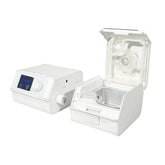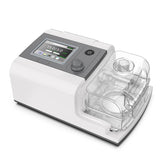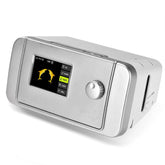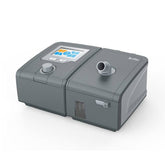How to Tell If Your CPAP Pressure Needs to Be Adjusted
Continuous Positive Airway Pressure (CPAP) therapy is a life-changing treatment for sleep apnea. However, to ensure its effectiveness, it's essential to have the right pressure settings. In this article, we will explore how to tell if your CPAP pressure needs to be adjusted and provide guidance on what to do if adjustments are necessary.
What Is the Average Pressure for Treating Sleep Apnea?
CPAP therapy typically starts with a pressure setting prescribed by your doctor. This pressure is known as your "titrated pressure," and it's customized to keep your airways open and alleviate sleep apnea events. The average CPAP pressure for treating sleep apnea usually falls in the range of 6 to 14 centimeters of water pressure (cmH2O). However, your specific pressure needs may vary based on individual factors.
How to Know if Your CPAP Pressure Needs Adjusting?
-
Regular Evaluation: Periodic follow-ups with your healthcare provider are essential to monitor your progress. If you continue to experience sleep apnea symptoms like loud snoring, gasping for air, or daytime fatigue, it may indicate that your CPAP pressure is insufficient. However, if you’re new to CPAP therapy and are experiencing issues, please give it a few more nights to get used to CPAP therapy.
-
Changes in Weight: Significant weight changes can impact your airway, affecting the effectiveness of your CPAP therapy. Weight gain or loss may necessitate pressure adjustments to maintain proper airway support.
-
Changes in Sleep Patterns: Alterations in your sleep habits can also influence pressure requirements. If you've started sleeping in different positions or experience increased apnea events, this could be a sign that pressure settings need reevaluation.
-
Leaks and Mask Issues: Consistent mask leaks or mask discomfort can hinder proper pressure delivery. Address any issues related to mask fit and comfort to ensure effective therapy.
Side Effects if Your CPAP Pressure Isn't Right For You
Inadequate or excessive CPAP pressure can lead to side effects. If the pressure is too low, it may not adequately treat sleep apnea, resulting in ongoing symptoms like fatigue, headaches, and reduced alertness. Conversely, if the pressure is too high, it can cause discomfort, mask leaks, and difficulty exhaling.
Which Factors Affect CPAP Pressure Setting?
Several factors can affect your CPAP pressure setting, including:
- Severity of sleep apnea
- Body mass index (BMI)
- Age
- Changes in sleep position
- Medications
- Medical conditions
What Should I Do If My CPAP Pressure Settings Need Adjustments?
If you suspect your CPAP pressure needs adjusting or are experiencing side effects, contact your healthcare provider. They can perform a sleep study or make pressure adjustments based on your symptoms and progress. Regular communication with your provider is vital to ensuring your CPAP therapy remains effective.
Final Thoughts
In the treatment of sleep apnea, the correct CPAP pressure setting is crucial. Through regular evaluation, lifestyle changes, and ongoing communication with your healthcare provider, you can ensure that your CPAP pressure is appropriate for your needs. If you notice any of the signs mentioned above or have concerns about your treatment, do not hesitate to seek professional guidance. Prioritize your sleep health and make the necessary adjustments to maintain the effectiveness of your CPAP therapy.







